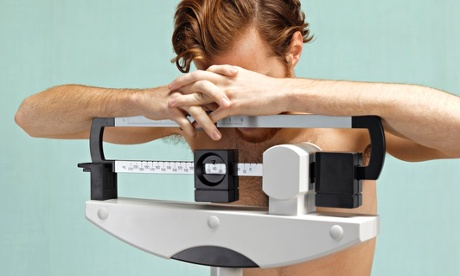If you want your child to be a healthy weight, don’t use the D word. Talking about diets or even weight is bad for all adolescents, the American Academy of Pediatrics said this week. The academy’s latest guidelines aim to prevent not only eating disorders but also obesity. They are particularly aimed at preventing teenagers who are trying to lose weight from tipping into eating disorders such as anorexia nervosa. Neville Golden, professor of pediatrics at Stanford University Medical School and lead author of the guidelines, said that 40% of those admitted for eating disorders are dieters who got out of control. “Scientific evidence increasingly shows that, for teenagers, dieting is bad news,” he said.
Teenagers in the US who diet in ninth grade (around 15 years of age) are three times more likely than non-dieters to be overweight by 12th grade. But dieting is also the most important predictor for developing an eating disorder. Hence the academy’s new one-size-fits-all guidelines. Wellness is the word preferred to weight. But wellness needs to be managed, too. Eating disorders can start with teenagers wanting to eat “healthily” and eliminate “bad” foods. This can slip into skipping meals and severely restricting foods. Likewise, exercise can become compulsive – especially after people praise teenagers for losing weight.
So what can you do to reduce the risk of eating disorders? A Guardian reader criticised a piece I wrote earlier this year on children’s weight by saying “this article reads like a list of what not to do, but has very little advice on what to do”. Ouch. So here, thanks to the academy, is that advice.
The solution
Don’t talk about dieting with your child, but go big on healthy eating and more physical activity instead. Do not talk about weight – yours, theirs, anybody’s. Encourage your teenagers to feel positive about their bodies – which is tough when half of teenage girls and a quarter of boys dislike their shape. But adolescents who are encouraged by parents and peers to exercise and eat healthily are happier with their bodies. Family dinners are also protective. A study of more than 13,000 pre-adolescents and adolescents found that having family dinners most days reduced the risk of eating disorders – parents can be role models for healthy eating, monitor their child’s intake and have a chat.
Never tease teenagers about weight. Up to 40% of girls are teased – it doubles the risk of being overweight and increases the risk of unhealthy dieting. Dr Rachel Rodgers, associate professor at the department of applied psychology at Northeastern University in Boston, says families should try to protect teenagers from the emphasis society puts on appearance and weight. It is better to push a “total diet” – eat anything, but in varying quantities. Can these guidelines really prevent eating disorders? At the very least, they won’t encourage them.











